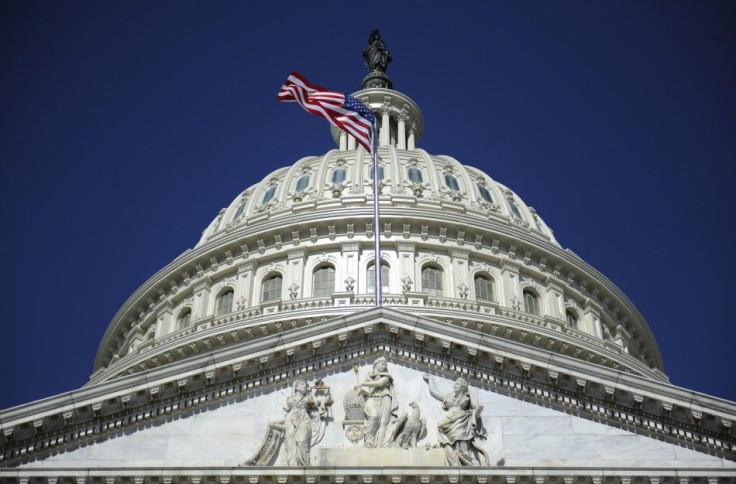Political uncertainty key to U.S. credit downgrade

In its rationale for lowering the U.S. top level credit rating, Standard & Poor's cited a "prolonged" political fight to raise the debt ceiling and "containing the growth in public spending, especially on entitlements, or on reaching an agreement on raising revenues."
S&P said reaching an agreement was less likely than assumed.
S&P said late Friday it had lowered the long-term U.S. credit rating to AA+ from AAA, saying that in its opinion, a recently passed deficit cutting plan by the U.S. government fell short of the goal of stabilizing the government's medium-term debt dynamics.
The rating drop was prompted by rising public debt and uncertainty in policy making.
"Republicans and Democrats have only been able to agree to relatively modest savings on discretionary spending while delegating to the Select Committee decisions on more comprehensive measures," the report stated.
The Select Committee is a group of lawmakers created in the recently passed law to raise the debt ceiling. The group will grapple with how to make additional cuts in federal spending in the coming months.
"Only minor policy changes on Medicare and little change on other entitlements, the containment of which we and most other independent observers regard as key to long-term fiscal sustainability," the report said.
The S&P report was released late Friday, after the closure of global markets.
"The downgrade reflects our view that the effectiveness, stability, and predictability of American policy making and political institutions have weakened at a time of ongoing fiscal and economic challenges to a degree more than we envisioned when we assigned a negative outlook to the rating on April 18, 2011," S&P said in a report.
S&P said it was "pessimistic" that the recent agreement could lead to a broader fiscal consolidation plan that would stabilize the government's debt dynamics "any time soon."
The outlook on the long-term rating was also listed as negative and the rating could fall further.
"We could lower the long-term rating to 'AA' within the next two years if we see that less reduction in spending than agreed to, higher interest rates, or new fiscal pressures during the period result in a higher general government debt trajectory than we currently assume in our base case," the report stated.
Shortly after the announcement, Rep. Kevin Brady, R-TX said he was "disappointed but not surprised."
Last week, President Obama and Congressional leaders reached a deal to raise the federal debt ceiling in an effort to avoid the first U.S. default. The agreement led to votes that averted the default by an August 2 deadline.
During the entirety of this week, however, U.S. stocks on the S&P 500 Index posted their biggest declines since 2008.
© Copyright IBTimes 2024. All rights reserved.




















